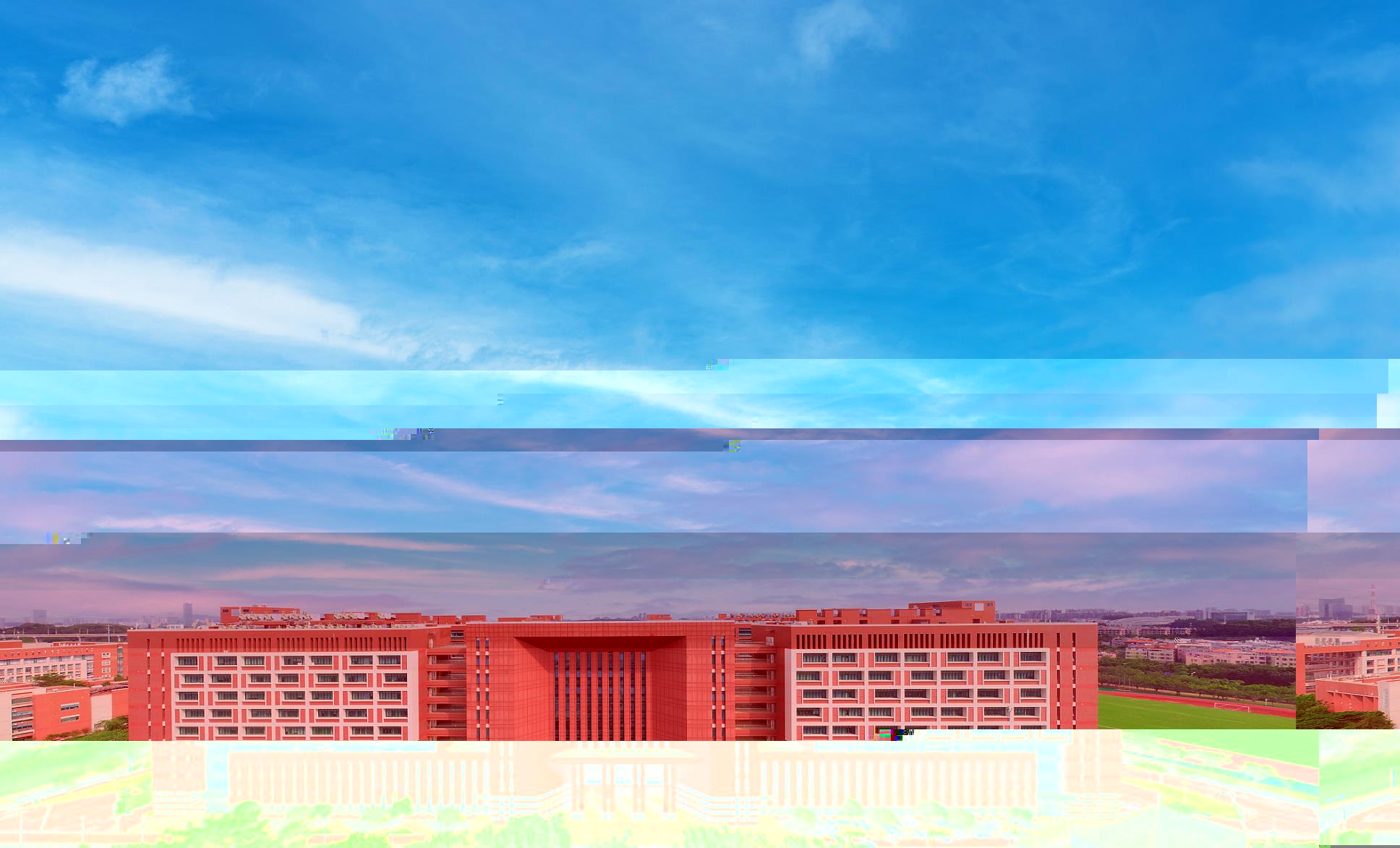Dear Friends,
Calling all chemistry enthusiasts!
We would like to share the following opportunity:
Theme: Dynamic Chemistry and Porous Materials
The Summer School focuses on the original innovation, integrating frontier scientific issues in information, energy, life, and other fields, especially on the Dynamic Chemistry and Porous Materials, by offering a series of themed lectures and four training and tutorials modules related to chemistry of porous materials.
Date: August 6th - August 18th, 2023
Application Deadline: extended to 6:00 PM (GMT+8), July 20, 2023
Venue: The East Campus of SYSU in Guangzhou.
Participants: Application is open to Undergraduate students and Master & PhD Students in chemistry-related disciplines from around the world.
Student Info-Kit (Updated!):
----We will provide the overseas students with round-trip international air tickets.
Expenses: Tuition fee and meals during the summer school will be fully covered by the organizing universities. Assistance will be provided for accommodation arrangements. Participating students in a summer school only have to pay for their own accommodation and transportation expenses.
----We will try our best to assist the overseas students in accelerating visa processing via official channels.
Scholarships: The Summer School will select approximately 20 outstanding students to receive scholarships.
----Besides, we will provide overseas students selected as outstanding students in Summer School with accommodation fees!
For more details, please consult the project contact.You can also click the link for details: ce.sysu.edu.cn/issc
Faculty & Course List

1. Prof. Jean-Marie Lehn (University of Strasbourg)
Perspectives in Chemistry: Towards Adaptive Chemistry
2. Prof. Mihail Barboiu (European Membrane Research Institute, University of Montpellier)
Rubbery Organic Frameworks- ROF Membranes for Enhanced Selective CO2 Capture
3. Prof. Susumu Kitagawa (Kyoto University)
Porous Soft Crystals
4. Prof. Hiroshi Kitagawa (Kyoto University)
Dimensional Crossover in Coordination Networks
5. Prof. Xiao-Ming Chen (Sun Yat-Sen University)
Porous Metal-Organic Materials for Electrocatalytic Carbon Dioxide Reduction: Opportunity and Challenge
6. Prof. Jihong Yu (Jilin University)
Zeolites for Sustainable Development
7. Prof. Banglin Chen (Fujian Normal University)
Multifunctional Metal-Organic Frameworks and Hydrogen Bonded Organic Frameworks
8. Prof. Hua Zhang (City University of Hong Kong)
Phase Engineering of Nanomaterials
9. Prof. Feng-Shou Xiao (Zhejiang University)
Catalysis by Zeolite-Fixed Metal Nanoparticles
10. Prof. Weishen Yang (Dalian Institute of Chemical Physics, Chinese Academy of Sciences)
Multidimensional Building Blocks for Molecular Sieve Membranes
11. Prof. Yu Han (King Abdullah University of Science and Technology)
Atomic-Resolution Electron Microscopy Imaging of Highly Sensitive Crystalline Materials
12. Prof. Wei Wang (Lanzhou University)
Applications of Solid-State NMR in Porous Materials
13. Prof. Junliang Sun (Peking University)
Structural Refinement of Porous Materials by Electron Diffraction
14. Prof. Jie-Peng Zhang (Sun Yat-Sen University)
Adsorptive Storage and Separation
15. Prof. Dan Zhao (National University of Singapore)
Diffusion and Sorption Kinetics
16. Prof. Sihai Yang (Peking University/University of Manchester)
Study on Porous Materials via Non-Elastic Neutron Scattering
17. Prof. Hexiang Deng (Wuhan University)
Small-Angle Scattering Technique and its Application in Studying Mesoporous Materials
18. Prof. Qiaowei Li (Fudan University)
Topology of Porous Materials
19. Prof. Rui Si (Sun Yat-Sen University)
X-ray Absorption Study of Porous Materials
20. Prof. Daliang Zhang (Chongqing University)
Introduction to Electron Crystallography Studies of Ordered Porous Materials
21. Prof. Peng Guo (Dalian Institute of Chemical Physics, Chinese Academy of Sciences)
Exploring Zeolites and Unraveling their Structural Secrets through X-ray and Electron Crystallography
22. Prof. Hui Shi (Yangzhou University)
Probing the Fine Details of Confined Voids and Deciphering their Catalytic Consequences in Porous Materials
23. Prof. Wei Li (Fudan University)
Synthesis and Structural Characterization of Mesoporous Materials
24. Prof. Libo Li (Taiyuan University of Technology)
Fixed-Bed Breakthrough Separation Technology
*Course arrangement is subject to adjust under particular circumstances.
Introduction to the Summer School

This Summer School aims to provide international students with high-quality courses in chemistry, cultural experiences, and corporate visits. We tap into the brilliant pool of the university's faculty, and its international network of experts, to develop a series of courses that include multiple interdisciplinary studies.
The program has successfully invited over 20 internationally renowned professors, including Professor Jean-Marie Lehn (Nobel Laureate in Chemistry), Professor Mihail Barboiu from the European Membrane Institute, Professor Susumu Kitagawa from Kyoto University, Academician Xiao-Ming Chen from SYSU, and AcademicianJihong Yu from Jilin University.

The courses will be conducted in English. We aim to select approximately 100 students through a rigorous application process. Concurrently, the "Growth Partners" International Summer School activity will be held based on the School of Chemistry and the Top-plan 2.0 Training Base.
In addition to creating an intensive academic environment, we hope to give you a dynamic social experience via city tours, cultural excursions, corporate visits and a variety of extracurricular activities.
We are waiting for you at SYSU!
Registration for the Summer School

1. How to apply?
For the application, please log in to https://wj.sysu.edu.cn/q/xSv8nhYb.
Please fill in the registration form online and upload your resume in English or Chinese.
If you encounter any issues accessing the above links, you can directly send your resume to chem@mail.sysu.edu.cn.
Deadline: The application deadline is 6:00 PM (GMT+8), July 20, 2023. The selection results will be announced in time.
2. Contact Information
Contact: Yongbin Chen
Phone: +86-20-39339789
Email: chenyb2@mail.sysu.edu.cn
Contact: Jiuxing Jiang
Phone: +86-20-39339784
Email: jiangjiux@mail.sysu.edu.cn

Thank you and we look forward to seeing you soon!
Faculty
*The full list of faculty is being updated

Jean-Marie Lehn was born in Rosheim, France in 1939. In 1970 he became Professor of Chemistry at the Université Louis Pasteur in Strasbourg and from 1979 to 2010 he was Professor at the Collège de France in Paris. He is presently Professor at the University of Strasbourg Institute for Advanced Study (USIAS). He shared the Nobel Prize in Chemistry in 1987 for his studies on the chemical basis of “molecular recognition” (i.e. the way in which a receptor molecule recognizes and selectively binds a substrate), which also plays a fundamental role in biological processes. Over the years his work led him to the definition of a new field of chemistry, which he has proposed calling “supramolecular chemistry” as it deals with the complex entities formed by the association of two or more chemical species held together by non-covalent intermolecular forces, whereas molecular chemistry concerns the entities constructed from atoms linked by covalent bonds. Subsequently, the area developed into the chemistry of "self-organization" processes and more recently towards "adaptive chemistry", dynamic networks and complex systems. Author of more than 1000 scientific publications, Lehn is a member of many academies and institutions. He has received numerous international honors and awards. He is one of the founders, honorary director, and PI of the Lehn Institute of Functional Materials at Sun Yat-Sen University (founded in 2010), the only institute with the authorization to use his family name of Lehn in the world.

Mihail Barboiu graduated from University Politehnica of Bucharest and received his PhD in 1998 from the University of Montpellier before spending 2 years as post-doctoral researcher at the University Louis Pasteur in Strasbourg. He is CNRS Research Leader at the Institut Europeen des Membranes in Montpellier and Fellow of Royal Society of Chemistry. Since 2014 he is also Extraordinary Professor in Sun Yat-Sen University in Guangzhou, China. A major focus of his research is dynamic constitutional chemistry toward dynamic interactive systems, adaptive biomimetic membranes, delivery devices etc. He is the author of more than 340 scientific publications, 3 books and 20 chapters and over 400 conferences and lectures. He has received the European Young Investigator Award in 2004 and the RSC Surfaces and Interfaces Award for the development of Artificial Water Channels in 2015.

Prof. Susumu Kitagawa is the member of the Japan Academy, Foreign Member of the Royal Society. He is a distinguished Professor and deputy director of the Kyoto University Institute for Advanced Study. Dr. Kitagawa is a pioneering scientist and made significant contributions to the field of porous materials research by originating the science and technology of gas with porous coordination polymers (PCPs) or metal-organic frameworks (MOFs). He predicted the softness of PCP/MOF crystals and demonstrated that their framework changes in response to external stimulus to express various functions such as storage, separation, and conversion, which has since been regarded as a landmark discovery in the porous material field. Prof. Susumu Kitagawa's invaluable findings have greatly enhanced the development and application of porous coordination polymers. He received the Japan Society of Coordination Chemistry Award (2007), Humboldt Research Award (2008), The Chemical Society of Japan Award (2009), Thomson Reuters Citation Laureate (Chemistry) (2010), The Medal with Purple Ribbon, Japanese Government (2011), The RSC de Gennes Prize (2013), The 10th Leo Esaki Prize (2013). Japan Academy Award (2016) and ACS Fred Basolo Medal (2016), The 58th Fujihara Award (2017), and Chemistry for the Future Solvay Prize (2017).

Prof. Hiroshi Kitagawa received all of his degree in Faculty of Science, Kyoto University. Now he is a full professor in department of chemistry, Graduate School of Science, Kyoto University. He is Deputy Executive Vice-President for Planning and Strategy Coordination and Vice Provost of Kyoto University, Vice Dean of the Graduate School of Science, Program Officer & Research Director of JST, Chief Program Officer of JSPS, the President of Japan Society of Coordination Chemistry. He is also a member of Science Council of Japan. In addition, he is the International Advisory Board member of Angewandte Chemie International Edition, European Journal of Inorganic Chemistry, and Editorial Board Member of Inorganic Chemistry Frontiers. Prof. Kitagawa has received a lot of awards, such as European Advanced Materials Award, Fellow of the Royal Society of Chemistry etc. Prof. Kitagawa is a famous scientist in solid-state chemistry, coordination chemistry, inorganic chemistry, nano science. His current research interests include solid-state protonics using MOFs and surMOFs, and nano-ionics using nanomaterials, creation of novel solid-solution alloy nanoparticles on the basis of density-of-states engineering by interelement, low-dimensional electron systems situated on dimensional crossover region, molecular conductors and conducting MOFs. He has achieved plentiful results, he has published around 500 papers including Nature Materials, Nature Chemistry, Chemical review, Chemical Society Reviews, Nature Communications, Journal of American Chemical Society, Angewandte Chemie International Edition, Advanced Materials, Accounts of Chemical Research etc. His h-index is 78.

Prof. Xiao-Ming Chen is Academician of the Chinese Academy of Sciences, Academician of The World Academy of Sciences for the advancement of science in developing countries (TWAS). He is a professor in school of chemistry at Sun Yat-Sen University and director of the Institute of Green Chemistry and Molecular Engineering. His current research interest is design, synthesis, and crystal engineering of functional metal-organic/hybrid materials, including coordination polymers, metal-organic frameworks, etc., and their applications (such as adsorption/separation, catalysis, electric/magnetic properties). His group was the first to discover several zinc imidazolates with permanent zeolitic MOF structures including Zinc(II) 2-Methylimidazolate published in 2006 (MAF-4, and well-known as ZIF-8), before the term of ZIFs appeared, which has now become the most well-known MOF.

Prof. Jihong Yu is the Vice President of NSFC, and the director of International Center of Future Science, Jilin University. She received her BS (1989), MS (1992), and PhD (1995) from Jilin University, and worked as a postdoctoral fellow first at the Hong Kong University of Science and Technology and then at Tohoku University in Japan during 1996-1998. She has been a full Professor in the Chemistry Department, Jilin University since 1999. She was elected as the Member of the Chinese Academy of Sciences in 2015, the Fellow of TWAS in 2016, the Member of Academia Europaea in 2019, and the Foreign Member of Royal Swedish Academy of Sciences in 2021.
Her main research interest focuses on the designed synthesis and application of zeolitic nanoporous materials in energy, environment and other emerging fields. She has co-authored over 400 research papers including Science, Nature, J. Am. Chem. Soc., Angew. Chem. Int. Ed., Chem, Adv. Mater., etc.; obtained over 40 authorized Chinese Invention Patents; co-published 7 books. She was the winners of the National Prize for Natural Science, the IUPAC 2017 Distinguished Women in Chemistry/Chemical Engineering Award, and the Ho Leung Ho Lee Science and Technology Progress Award. Currently, she serves as the Executive Editor of JACS, the Editorial/Advisory Board Members of Chemical Reviews, Accounts of Chemical Research, JACS-Au, Advanced Materials, Chem, Matter, ACS Nano, National Science Review, etc. She is the Chair of Chinese Zeolite Association, and Vice President of Chinese Chemical Society.

Prof. Banglin Chen was born in Zhejiang, China. He received his BS (1985) and MS (1988) degrees in Chemistry from Zhejiang University in China, and his PhD (2000) from the National University of Singapore. He worked with Professors Omar M. Yaghi at University of Michigan, Stephen Lee at Cornell University, and Andrew W. Maverick at Louisiana State University as a postdoctoral fellow during 2000–2003 before joining the University of Texas-Pan American in 2003. He was promoted to be an Associate Professor in 2007, moved to the University of Texas at San Antonio in August 2009, and was promoted to be a Full Professor in 2011, and Distinguished and Distinguished Chair Professor after 2015 before joining Fujian Normal University in 2023 as the Distinguished University Chair Professor, working on multifunctional metal–organic framework and hydrogen bonded organic framework materials. He is a Fellow of American of Association for the Advancement of Science (AAAS) (2017), a Fellow of Royal Society of Chemistry (FRSC) (2019) and a Foreign Fellow of European Academy of Sciences (EURASC) (2019). In 2011, Dr. Chen was ranked as the 15th Top Chemist over the past decade (2000 to 2010) based on the citation impact score by the Thomson Reuters. During 2014-2022, he was chosen annually as a highly cited researcher in Chemistry by the Clarivate Analytics. In November 2018 and October 2021, he received the Humboldt Prize and 2021 Southwest Regional ACS Award, respectively.

Prof. Feng-Shou Xiao received his B.S. and M.S. degrees in the Department of Chemistry, Jilin University, China. From there he moved to Dalian Institute of Chemical Physics, China for Ph. D. research, then to the Catalysis Research Center, Hokkaido University, Japan, where he was involved in collaborative research between Dalian Institute of Chemical Physics & Jilin University, China with Hokkaido University, Japan. He was a Ph.D. student in Dalian for one year and in Sapporo for two years. In 1990, he was awarded his Ph.D. degree at Jilin University. After postdoctoral work at the University of California at Davis, USA, he joined the faculty at Jilin University in 1994, where he became a full professor in 1996 and distinguished professor in 2003. Since the end of 2009, Dr. Xiao as a distinguished professor has moved to Department of Chemistry, Zhejiang University. In 2021 April, he went to College of Chemical and Biological Engineering, Zhejiang University. Currently, he is an associate editor of Industrial & Engineering Chemistry Research, also serving as secretary of the Asia-Pacific Association of Catalysis Societies. His research is mainly focused on zeolites, porous materials, and catalysis. He has more than 500 peer-reviewed papers, over 30 000 citations, H index of over 88, ~ 100 granted patents, and over 50 plenary and keynote lectures at international conferences.

Prof. Weishen Yang, the lead researcher of Dalian Institute of Chemical Physics, Chinese Academy of Science. His research interests focus on the inorganic membrane and catalysis by membrane. He is the winner of the National Science Fund for Distinguished Young Scholars and the leading scientist of the National 973 project. He is the principal of the Major Program of the National Natural Science Foundation of China. He has published over 400 scientific articles in journals, Science, JACS, Angew. Chem. Int. Ed. etc with H-index of 79. Total citations are more than 25000. He has published more than 60 patents. He realized the first microwave-assisted industrial-scale synthesis of molecular sieve membranes. He reached more than 10 sets of industrial application demonstrations of organic molecular sieve membrane dehydration. As a leading scientist, he won the second prize in the National Natural Science Award (2015) and the first prize in the Liaoning Provincial Natural Science Award twice (2006, 2020).

Prof. Yu Han is a materials chemist and his research focuses on nanoporous and nanostructured materials for novel applications in gas adsorption/separation, heterogeneous catalysis, and nanophotonics. Dr. Han is also known for his contributions to the development of ultralow-dose electron microscopy methods, which, for the first time, achieved atomic-resolution imaging of extremely sensitive materials including MOFs, COFs, supramolecular structures and hybrid perovskites. Prof. Han has published > 300 articles in prestigious journals including Science, Nature, Nature Materials, Nature Chemistry, Nature Catalysis, Nature Nanotechnology, Nature Communications, JACS, and these papers have been cited over 40,000 times with h-index of 100 (google scholar, as of April 2023). His achievements have garnered international recognition. In 2004, he was named as a TR100 Young Innovator by the MIT’s magazine of innovation, Technology Review. In 2006, he was awarded the Young Scientist Award by the Singapore National Academy of Science. In 2016, he got the Cheung Kong Scholar award, the highest academic award issued to an individual by the Ministry of Education of the People's Republic of China. In 2021, he received the Humboldt research award. He is the Fellow of Royal Society of Chemistry (FRSC) and designated by Clarivate as a Highly Cited Researcher in 2019-2021.

Prof. Jie-Peng ZHANGobtained his B.S. in 2000 and Ph.D in 2005, under the supervision of Prof. X.-M. Chen at Sun Yat-Sen University (SYSU). He was a JSPS postdoc in Prof. S. Kitagawa’s group at Kyoto University from 2005 to 2007. He moved back to join SYSU as an associate professor in 2007, and was promoted to full professor in 2011. He has received the Young Chemistry Award of Chinese Chemical Society in 2011, the China Youth Science and Technology Award in 2019, and the Explorer Prize in 2020. His research focuses on adsorptive separation of porous coordination polymers (PCPs) or metal-organic frameworks (MOFs), and has discovered a series of new flexibility/adsorption/separation behaviors and mechanisms, such as kinetically controlled flexibility, gating adsorption, hydrophilic ultramicropores for capturing hydrophobic guest, controlling guest conformation for inversing adsorption selectivity, intermediate-sized molecular sieving, etc.

Prof. Dan Zhao obtained his PhD degree in Inorganic Chemistry under the supervision of Prof. Hong-Cai Joe Zhou at Texas A&M University in 2010. After finishing his postdoctoral training at Argonne National Laboratory, he joined the Department of Chemical & Biomolecular Engineering at National University of Singapore in July 2012 as an Assistant Professor, and was promoted to Associate Professor with tenure in July 2018. He started to serve as an Associate Editor of Industrial & Engineering Chemistry Research in June 2021. His research interests include advanced porous materials and hybrid membranes with applications in clean energy and environmental sustainability.

Prof. Sihai Yang Prof. Sihai Yang received his BSc in Chemistry from Peking University (2007) and PhD in Inorganic Chemistry from the University of Nottingham (2010). In 2015, he moved to the Department of Chemistry at the University of Manchester, where he was promoted to a Chair in Inorganic Chemistry. In 2023, he joined Peking University as a Chair professor. His academic awards include the Diamond Young Investigator Award (2011), the Honourable Mention Award of International Union of Pure and Applied Chemistry (IUPAC) Prize for Young Chemists (2012), the Institute of Physics B T M Willis Prize (2013), the ISIS Neutron & Muon Source Impact Awards (2019), the CCDC Chemical Crystallography Prize for Younger Scientists (2019), and the RSC Harrison-Meldola Memorial Prize (2020).

Prof. Qiaowei Li obtained his B.S. degree from the University of Science & Technology of China (USTC) in 2004, M.S. from University of Michigan in 2006, and Ph.D from UCLA in 2010 with Prof. Omar M. Yaghi. He was an associate professor of Chemistry in the Chemistry Department at Fudan University in China since 2010, and he was promoted to full professor of Chemistry in 2017. He has been the recipient of Outstanding Research Award in Inorganic Chemistry, UCLA (2010), Shanghai Pujiang Talent (2011), Shanghai "Rising-Star Program" Scholar (2015), and Shanghai "Top-Notch Talent" Award (2017). He also received the "National Science Fund for Outstanding Young Scholar" (2019). His research group is working on the design, synthesis, and application of metal-organic frameworks (MOFs). Current work includes vacancy chemistry in MOFs, MOFs with multicomponents, and their applications in energy storage. Li has published papers in journals such as Science, J. Am. Chem. Soc., and Angew. Chem. Int. Ed., with himself being the corresponding author. His research work has been highlighted in journals such as Nature Chem, C&EN etc.

Prof. Guo Peng is a full professor at the Dalian Institute of Chemical Physics and serves as the group leader of DNL1210. He graduated from Stockholm University in 2016 with a major in inorganic chemistry under the guidance of Professor Zou Xiaodong, a world-renowned crystallographer, member of the Swedish Academy of Sciences, and a Nobel Prize judge. He was honored with the Talent Program of the Chinese Academy of Sciences. Prof. Guo has dedicated his research to the characterization of microstructures in industrial catalysts. His work primarily involves utilizing X-ray powder diffraction and electron crystallography techniques, including three-dimensional electron diffraction and high-resolution imaging, to analyze the atomic-scale microstructures of novel zeolites, study the arrangement of structure-directing agents within zeolites, investigate the distribution of acid (adsorption) sites, and examine defects in zeolites. He has published numerous academic papers in esteemed journals such as Nature, JACS, Angew. Chem. Int. Ed, Chemical Science, and Small. Dr. Guo has received notable recognition for his contributions, including the STOE Young Scientist Award in Crystallography (2018), the Zhang Dayu Young Scholar Award (2019), and the 20th China Molecular Sieve Rising Star Award (2019). Additionally, he serves as a young editorial board member for Chinese Chemical Letters from January 2022 to June 2025.

Prof. Hui Shi obtained his bachelor’s and master’s degrees at Tsinghua University (advisor: Prof. Bo-Qing Xu) and earned his Ph.D. degree (Summa Cum Laude) under the supervision of Prof. Johannes A. Lercher. After a four-year postdoc stay at the Pacific Northwest National Laboratory (USA), he was a senior research scientist/group leader in Prof. Lercher’s group from 2017 to 2019, in charge of research activities related to biomass conversion and hydrotreating catalysis as well as some teaching obligations (“Surface Science and Heterogeneous Catalysis/“Oberflächenchemie Heterogener Katalysatoren”). He has been a full professor at the School of Chemistry and Chemical Engineering of Yangzhou University since 2020, and was elected into prestigious provincial and national talent programs (the Jiangsu Specially-Appointed Professor and the Distinguished Young Scholar of the National Natural Science Foundation of China (Overseas) in 2020 and 2021, respectively). He has co-authored more than 50 papers and a book chapter, and has given numerous invited lectures at international conferences. Prof. Shi’s main research interests include the fundamental understanding of acid-base and hydrogenation/oxidation catalysis in zeolites, transition metal sulfides and supported metal catalysts at solid-gas and solid-liquid interfaces. His work combines advanced physicochemical methods and rigorous kinetic and isotopic probes to interrogate the kinetic and mechanistic aspects of catalytic reactions on surfaces and in pores as well as to characterize the structure and electronic state of these enabling materials in stages of preparation as well as during sorption and catalysis. He is currently a member of the International Advisory Board for ChemCatChem (Wiley).

Prof. Wei Li, Yangtze River Scholar Distinguished Professor at Fudan University. He obtained his bachelor degree from Heilongjiang University, doctor degree from Fudan University, China in 2008 and 2014, respectively. From 2014 to 2016, he worked as Postdoctoral fellow in University of Toronto, Canada, and Institute of Basic Sciences, Republic of Korea, respectively. After returning to Department of Chemistry of Fudan University, he became an associate professor in 2016 and a full professor from 2019 to now. He has published more than 180 SCI papers in Nature Protoc., Nature Commun., Sci. Adv., J. Am. Chem. Soc., Angew. Chem. Int. Ed., Adv. Mater., Natl. Sci. Rev., etc., which have been cited more than 20,000 times. H-index 70. He has won the first prize of the National Natural Science Award in 2020 (the second complete adult). He is currently a member of the International Mesostructured Materials Association, the Energy Chemistry Committee of the Chinese Chemical Society, and a member of the editorial working group of National Science Review.

Prof. Libo Li is a professor and doctoral supervisor at Taiyuan University of Technology with presided over several scientific research projects, including National Science Foundation of China for Excellent Young Scholars (Excellent Completion) and National Key R&D Program of China. He is the deputy secretary-general of the Molecular Recognition Separation Engineering Committee. Prof. Li’s research is focus on the synthesis, functionalization and gas separation on new porous materials. He has been published over 100 academic papers in chemistry and chemical engineering journals, including Science, Nature Materials, Nature Chemistry, J. Am. Chem. Soc., Angew. Chem. Int. Ed., Advanced Materials, AICHE. J., with more than 6000 times citations. He was awarded the second-class prize of Science and Technology of Chinese Chemical Industry Society (2021, 1/5), the first-class prize of Natural Science of Shanxi Province (2021, 2/5), Youth Chemistry Award of the Chinese Chemical Society, Hou Debang Chemical Science and Technology Youth Award, and Chinese Zeolite Rookie Award.



